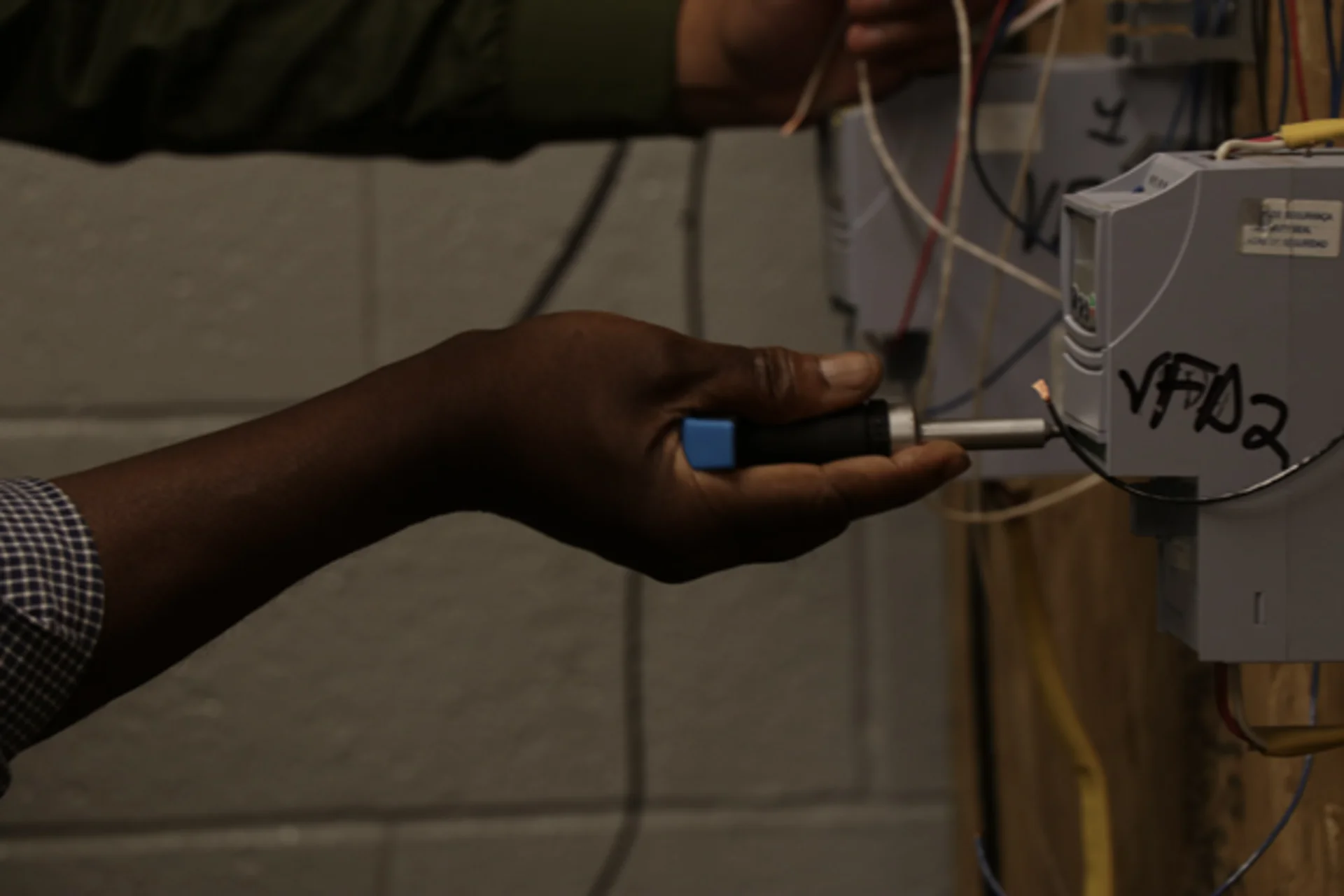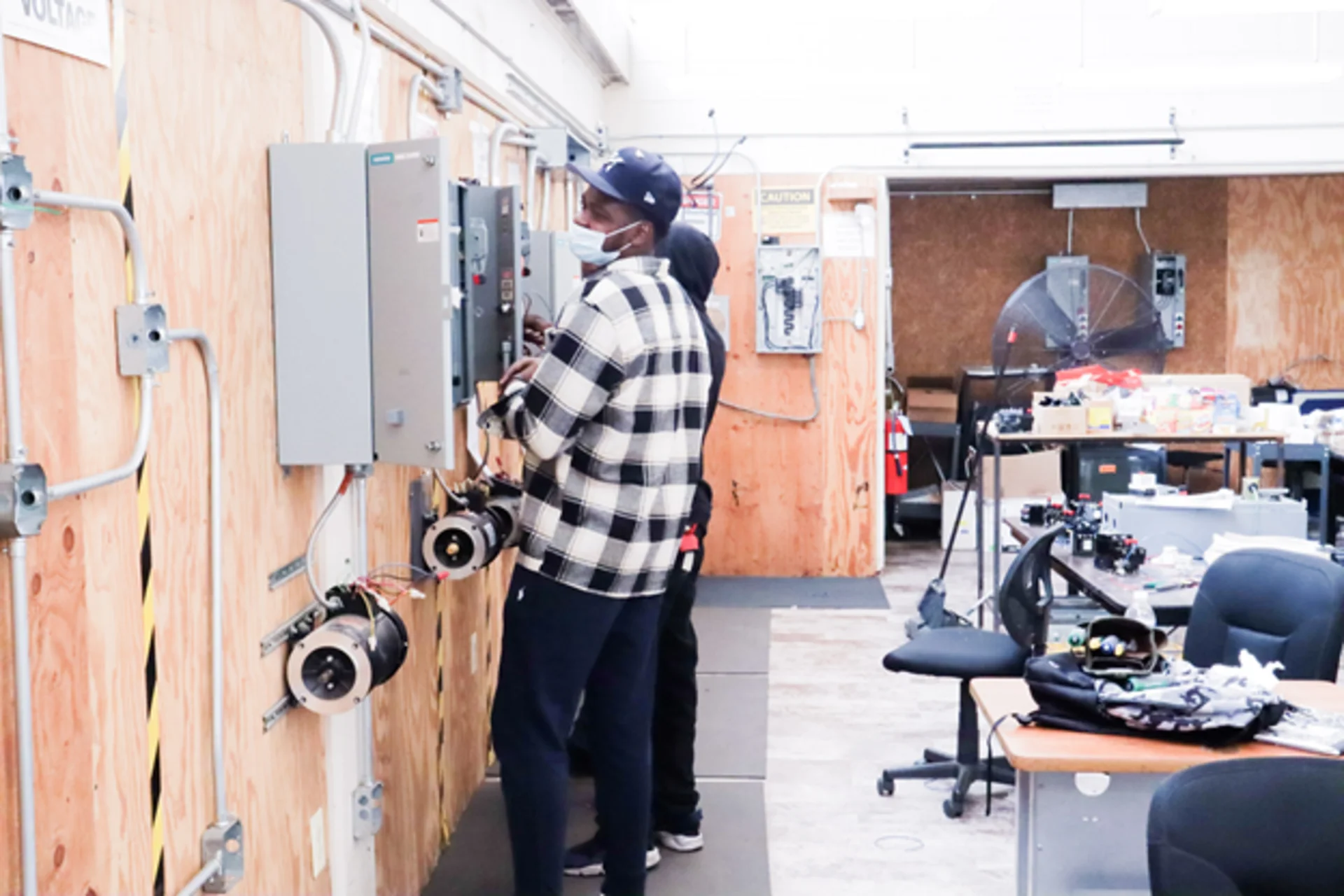As we move into 2025, smart home technology is transforming how we live, and electricians are at the forefront of this change. Even more people are consulting experts who are able to competently perform electrical works in addition to installing smart home automation systems. This trend is unlikely to be reduced. There is a high likelihood for electricians to succeed in this fast growing and much needed region.
In this article we will review how electricians can up their game and benefit from the growth of home automation and wiring in 2025.
In 2025, electrician training is changing to meet the swift development of high-tech systems. With breakthroughs in IoT, sensor integration and AI-enabled energy management, the stage is being set for sophisticated future electrical systems. As the technology of a smart home evolves, electrical technician training programs are changing to meet new requirements. The modern course for electrical technician education has modules on automatic control systems, communication protocols, and platforms for connected devices, which equip graduates with skills that can address industry change effects.
Now, the major emphasis of electrical technician education is knowledge about cloud-based control hubs and the design of conservant circuit designs. With efficiency goals for energy use climbing, electrical technician training focuses more on skills that enable electricians to produce smarter and greener electrical systems.
Besides, the knowledge of advanced materials like flexible wiring and low voltage smart panels is now a prerequisite for the electrical technicians. Due to the importance of these materials for the integration and automation of smart homes, these materials have become part of the major training programs available for electrical technicians; the present day.
As of 2025, the main factors that facilitated the development of electrical technician training were, etc.

The current electrical infrastructure relies heavily on smart technologies such as IoT, AI, and automation. Technicians should be trained to handle such systems so that they can meet the rapidly increasing demand for intelligent electrical setups. With the inclusion of smart technologies, electrical training has modified its teachings to prioritise these innovations.
Under the increasing progress in smart homes as well as interoperable devices, it is expected that employment for electricians in the U.S will boom by 14% by 2026.
Consequently, in the face of the growing need for automation expertise, electrical technician training has been updated to incorporate courses in the basics of automation systems and communication protocols into its syllabus. Technicians qualify to handle and repair smart systems with this expertise making them important in modern warehouse and home setups.
The possibility of the worldwide smart home market in the next several years is forecast at 25% compound annual growth rate (CAGR) from 2023.
Electrical technician training teaches students how to use these skills to design circuits that attain high performance while promoting sustainable practice in meeting escalating needs for environmentally friendly systems. Today’s training curriculums include cloud-based control hubs that help electricians understand systems used to optimize energy use.
Flexibility in wiring and devices operating at low voltage levels is a recurrent theme of late advances in electricity systems. These materials get emphasized in electrical technician training with the hope that graduates can confidently use them in smart homes construction or automated systems.
The decisions made in choosing your education dictate your career opportunities. Leading electrician training schools are tweaking their curriculum to keep up with the need for digital technology. Recently, many trade schools have come up with specialized courses in smart home technology and automation to help electricians to make a quicker transition into the rapidly expanding home automation field.
Trainees who won’t only receive a degree in smart technologies and automation might become 20-30% more paid than those who stick with outdated electrical methods.
And these are the reasons why these school make for the best choices for those who want to be electricians in 2025:

State-of-the-art schools in the education of electricians emphasize hands-on experience by creating real-world smart home simulation banks for their students. Students learn how to control the most advanced technologies, most importantly, smart lighting, climate control, and security systems that form the basis of the home automation industry.
More and more, highly respected technical programs for aspiring electricians include apprenticeship opportunities, intended to develop practical skills for trade work. Interaction with innovative companies producing and constructing homes and the builders themselves has the potential to allow students to implement home automation system principles in real-world situations.
Trade schools that have a good reputation for the electrician training program tend to include smart-home-wire certifications in their education; preparing students for work in the home automation industries. Trade schools for electricians prepare students for skills in installing and servicing smart devices, which welcomes newcomers into the rapidly developing markets for smart homes.
Enrolling in pipefitting courses simultaneously with electrical systems is a part of the educational plan at best trade schools for electricians, where construction skills should become comprehensive. Thorough knowledge of plumbing integration with respect to electrical systems prepares the electricians to handle each aspect of construction.
Setting up your first home automation project is a perfect entry into the fast-rising world of smart technology and a great beginning for new electricians. You’ll find easy-to-follow guidance below that helps you start.

It’s best to get started by setting up smart lighting, climate controls, and security systems in your home. For most people beginning with home automation, these systems come first. When you know how to put together the fundamental systems, you’ll find it easier to work with more advanced ones.
By 2025, homeowners mostly want convenient systems, energy efficiency, and mobile device friendliness.
If you know these priorities, you can make sure your automation projects meet today’s living needs.
Initially, it’s helpful to join forces with platforms that are already well-known, for example Lutron, KNX, or HomeKit. Because these platforms let electricians control lighting, and security easily from one place, they are considered must-have tools for home automation projects.
Working with home builders, realtors or interior designers helps you find clients interested in smart home installation. Because of this, these professionals usually connect their clients with electricians who specialize in smart home systems, which brings in extra business for the electricians.
The rise of smart home systems in 2025 is a big opportunity for electricians to develop new specializations. Electricians can make sure they are prepared for what’s ahead by specializing in the latest electrical technician education. Being able to install smart-home wiring and home automation systems will be a big advantage if you are just starting out or aiming to reach higher in your career.
Ensure to train on required skills, choose the best electrical technician training literally, and mix knowledge with craftsmanship. Using these approaches you will be well equipped to cross such projects of residential electrical operations of the next generation.
Read More: